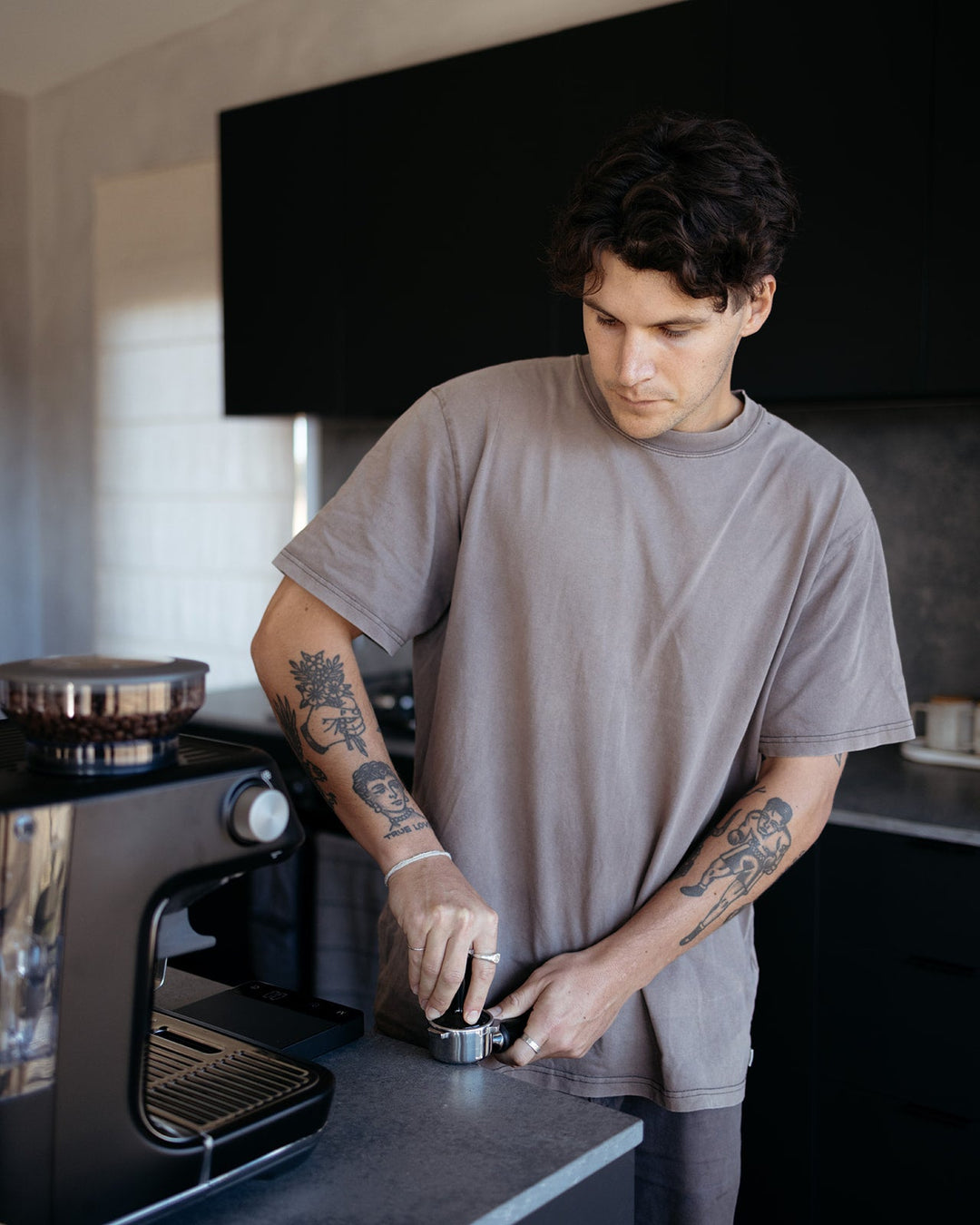SOE Single Origin Espresso – The Perfect Choice for Espresso Lovers
SOE Single Origin Espresso – The Perfect Choice for Espresso Lovers
Blog Article
Comprehending Coffee Beans: the Journey From Coffee to Blended Coffee Beans
The Origins of Coffee: A Global Viewpoint
While you may assume of coffee as a modern staple, its beginnings map back centuries, intertwining with societies across the globe. The story starts in Ethiopia, where tale claims a goat herder called Kaldi found the energizing impacts of coffee beans after observing his goats romping vigorously after consuming them.
As profession paths broadened, coffee made its way to Europe in the 17th century, swiftly gaining popularity. Each society included its one-of-a-kind twist to coffee preparation, enhancing its history.
Growing and Harvesting of Coffee Beans
As coffee's journey advanced, the focus changed to the farming and harvesting of particular bean ranges, specifically those made use of for espresso. You'll discover that coffee beans typically come from Arabica or Robusta plants, each offering distinctive flavors. The perfect growing conditions include high altitudes and rich, well-drained soil, which enhance the beans' quality.
During the harvest, choosing approaches differ. In some regions, workers hand-pick ripe cherries, guaranteeing only the best fruit goes to processing. In other locations, mechanical farmers are used, particularly on larger ranches. Timing is vital; you intend to collect when the cherries reach peak perfection for maximum flavor.
Once harvested, the beans are gotten ready for processing, which is vital in determining their final taste. Comprehending the growing and gathering procedures offers you understanding into what goes right into your favorite coffee, enriching your gratitude for each cup.
Processing Approaches: From Cherry to Bean
Since you've discovered collecting espresso beans, let's check out just how those cherries transform into the coffee beans you like. You'll see just how different harvesting strategies impact flavor, followed by the necessary steps of fermentation and drying out. We'll break down the milling and grading process that determines your coffee's quality.
Harvesting Methods Clarified
When it comes to coffee, comprehending harvesting methods is important, because they straight influence the flavor and high quality of the beans you delight in. Discerning choosing entails hand-picking only ripe cherries, ensuring you get the best high quality beans. Ultimately, the choice of collecting technique can substantially affect your coffee experience, so it's worth understanding how those beans made it to your mug.
Fermentation and Drying Out
After collecting, the following steps in processing coffee beans play a considerable duty fit their flavor. You'll locate that fermentation is important, as it aids damage down the mucilage surrounding the beans, improving their taste account. Relying on the approach, this procedure can last from a couple of hours to a number of days, with differing results based on temperature level and moisture.
Once fermentation is total, drying complies with, which is similarly crucial. You can pick from mechanical or sun-drying drying out methods. Sun-drying enables the beans to take in flavors from the atmosphere, while mechanical drying guarantees regular wetness levels regardless of weather. Appropriate drying out is necessary to avoid mold and mildew and preserve the beans' high quality, eventually influencing your mug of coffee.
Milling and Grading Refine
As fermentation and drying set the phase for taste development, the milling and grading procedure guarantees that just the very best coffee beans make it to your mug. This phase entails eliminating the external layers of the coffee cherry, including the parchment and husk. After milling, the beans are sorted by dimension and weight, guaranteeing a consistent high quality. You'll locate that grading helps recognize flaws and categorize beans, which affects taste and scent. Top quality beans receive a greater grade, leading to a richer coffee experience. When rated, the beans await packaging and delivery, protecting their unique qualities. This careful process is essential for delivering the exceptional preference you enjoy in every sip of your preferred brew.
Roasting Methods: Unlocking Flavor Potential
When you roast coffee beans, the method you select can significantly affect the flavor profile. Comprehending the partnership in between time, temperature, and toasting methods is crucial to disclosing the potential of your brew. Allow's explore how these elements come with each other more to develop the ideal cup.
Toasting Methods Discussed
While you may believe that all coffee toasting methods yield the exact same outcomes, the truth is that each method reveals one-of-a-kind taste possibilities in the beans. Drum toasting makes use of a turning drum to uniformly disperse warmth, boosting caramelization and producing a balanced flavor. Air roasting, on the more other hand, circulates hot air around the beans, promoting a lighter roast with obvious acidity.

Influence On Taste Profile
Different toasting techniques not only affect the procedure however also greatly influence the taste profile of the coffee beans. When you select a light roast, you'll experience bright acidity and flower notes, showcasing the bean's beginning. In contrast, a tool roast equilibriums acidity with sweetness, commonly exposing chocolatey touches. Dark roasts, on the other hand, highlight bold, smoky tastes, in some cases covering up the bean's distinct attributes. Each technique exposes various oils and compounds, bring about a vast array of tastes. By exploring with numerous toasting designs, you can find which accounts reverberate with your palate. Recognizing these nuances aids you value the artistry behind your cup of coffee, improving your general experience with every sip.
Time and Temperature Variables
To release the complete taste possibility of coffee beans, both time and temperature during the toasting process play significant duties. When toasting, you'll locate that higher temperature levels can quickly create tastes, but if you rush it, you may end up with burned notes. Conversely, reduced temperatures enable a much more steady taste growth, showcasing the beans' unique characteristics.

Timing is equally as important; prolonging the roast too long can bring about a loss of acidity and brightness, while too brief a roast might leave the beans underdeveloped. Locating that pleasant place calls for method and experimentation. By changing these elements, you can expose the abundant, complicated tastes hidden within each bean, developing a truly amazing coffee experience.
The Art of Blending: Crafting Unique Coffee Profiles

Beginning by choosing a base coffee that provides a solid foundation. An intense Ethiopian bean can bring fruitiness, while an abundant Brazilian coffee adds body.
As you blend, remember that each mix narrates. You're not just making coffee; you're producing an experience. So, take your time, preference often, and enjoy the journey of discovering your signature blend.
Developing Approaches: Exactly How Prep Work Influences Taste
Mixing coffee opens up a domain of taste possibilities, but how you brew that mix can significantly affect your final cup. Different brewing methods remove one-of-a-kind tastes and fragrances, so it's essential to select wisely. A French press permits sediments and oils to remain, developing an abundant, robust experience. On the various other hand, a pour-over highlights the coffee's quality and illumination, ideal for showcasing delicate notes.
Coffee, with its high stress, generates a concentrated shot that highlights sweetness and crema. If you favor a lighter brew, take into consideration a cool mixture technique; it produces a smooth, much less acidic preference.
Ultimately, trial and error is vital. Changing variables like water temperature, grind size, and make time can transform your coffee's account. Embrace the art of brewing to find the tastes concealed in your coffee blends. The right method can boost your experience to new elevations.
The Future of Coffee: Sustainability and Development
As the coffee market advances, sustainability and development are becoming vital for dealing with ecological difficulties and conference consumer needs. You'll see that even more coffee business are taking on environmentally friendly techniques, from sourcing beans fairly to executing lasting farming strategies. These changes not only aid the planet yet likewise boost the top quality of the coffee you enjoy.
You might see technologies like biodegradable packaging and water-saving developing techniques that decrease waste. Advanced modern technology, such as blockchain, is likewise ending up being prominent, making sure openness in the supply chain, which enables you to trace your coffee back to its origins.
Furthermore, investing in local areas and sustaining farmers through fair profession efforts fosters a more sustainable coffee community. As you sip your following cup, remember that your selections can add to a brighter future for coffee. By choosing sustainable brands, you're not just delighting in a beverage; you're making a favorable effect on the world.
Often Asked Concerns
What Is the Distinction Between Arabica and Robusta Beans?
Arabica beans are smoother, sweeter, and have a greater acidity, while robusta beans are more powerful, more bitter, and contain even more caffeine. You'll observe these differences in taste and aroma when making your coffee.
Just How Does Altitude Affect Coffee Bean Taste?
Elevation effects coffee bean taste substantially. Greater elevations generate beans with brighter acidity and complicated tastes, while reduced elevations frequently produce beans that are heavier and much less nuanced. You'll see these distinctions in your cup!
What Are the Wellness Perks of Drinking Coffee?
Drinking coffee can improve your power, enhance mental emphasis, and even improve physical efficiency. It's abundant in anti-oxidants, might decrease the risk of particular illness, and can advertise a much healthier metabolism when eaten in moderation.
Can Coffee Beans Be Recycled for Developing?
Yes, you can recycle coffee beans for brewing, however the taste could be weaker. If you appreciate experimenting, try reusing them in different ways, like cool mixtures or including in smoothies for an additional kick.
Exactly how Should I Store Coffee Beans for Freshness?
To maintain your coffee beans fresh, save them in a closed container in a great, dark location. Prevent revealing them to heat, dampness, or light, as these elements can quickly deteriorate their taste and aroma.
Understanding Coffee Beans: the Journey From Coffee to Blended Coffee Beans.
Now that you have actually discovered regarding collecting coffee beans, let's discover exactly how those cherries change into the coffee beans you love.When you roast coffee beans, the technique you choose can significantly affect the taste account - Single Origin Espresso.While you may think that all coffee roasting approaches produce the very same results, the reality is that each method exposes special flavor capacities in the beans.Different toasting techniques not only affect the procedure yet likewise substantially impact the taste account of the coffee beans
Report this page